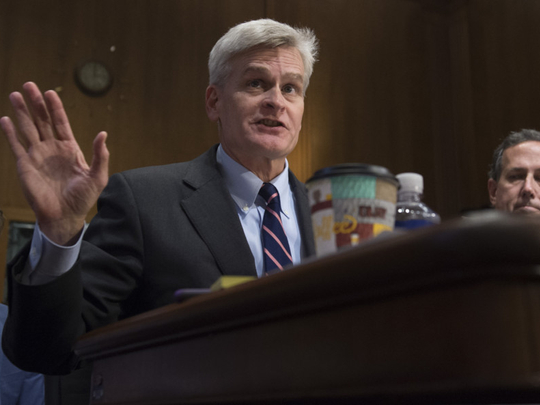
Until Donald Trump briefly applied himself to the subject, “nobody knew that health care could be so complicated.” President Trump said this in February 2017. The wonder of discovery is a delight to behold no matter how late in life it awakens.
In fact, everyone with a chronic disease in the United States knows health care is complicated. Rich or poor, young or old, their illnesses open their eyes to the fact that the so-called health-care industry, which amounts to roughly one-sixth of the US economy, is not an industry at all. It is a chaotic crossroads of many different industries and professions, often in fierce competition, each adapted to its own culture and pursuing its own business model.
This is what makes health-care reform so difficult, and so failure-prone. Insuring patients is a very different business from treating patients; both are distinct from the business of discovering new medicines and inventing new devices. The pharmacy business is different from the fitness business; suing for malpractice is unlike diagnostic testing; hospice care is a long way from digitising medical records.
And so on.
The late Neal Patterson often told the story of trudging from one doctor’s office to the next in one hospital after another with his cancer-stricken wife, with her heavy medical files in two shopping bags. His point: the utter lack of communication and coordination in the health-care sector. It was an especially powerful story because Patterson was the billionaire founder of one of the world’s leading health-care IT firms, Cerner Corp. If that was his experience, imagine what it’s like for Joe Average.
I watched something similar recently. After the Food and Drug Administration approved a new treatment to slow multiple sclerosis, a loved one asked her neurologist to prescribe the medicine. That seemingly straightforward process set off a several-months-long marathon of countless phone calls, hours on hold and heaps of paperwork. She had to pin down her insurance company on its rules for approval and relay those to her prescribing doctor. She had to negotiate a discount from the pharmaceutical company and relay the new price to the insurance company. She had to convey their eventual agreement to the pharmacy benefit manager at precisely the right time to have the medicine arrive at the hospital for infusion at a pre-scheduled appointment.
A patient needs the endurance of Shackleton, the determination of Tubman and the organisational skills of Eisenhower planning D-Day.
As Republicans in Congress watch their latest effort to repeal and replace Obamacare labouring toward the rocks, it’s important to see the entire sector. The Cassidy- Graham bill, even if it somehow reached port after Sen. John McCain, R-Ariz., abandoned ship, would touch only one piece of the sprawling mess: insurance.
Cassidy-Graham would repeal the Obamacare requirement to buy health insurance, and it would eliminate the Medicaid expansion and middle-class subsidies intended to make insurance affordable. As a replacement, the bill calls for block grants to help states pay for their own reform attempts.
This strikes me as an awful lot of costly disruption in service of a largely symbolic repeal. Cassidy-Graham could have been titled the Lobbyist and Consultant Full Employment Act, because it would keep a lot of people busy in state capitals and insurance company headquarters for years to come. Most Republicans like it because it’s a fig leaf to wear at town-hall meetings.
Given their legislative shortcomings, it’s no mystery why they’d want one.
The Bernie Sanders “Medicare for All” proposal shares this blindered focus on the talisman of insurance. It reminds me of Moscow’s GUM department store in the days of the Soviet Union. Everyone had equal access to the mostly empty shelves of shoddy merchandise.
Health-care consumers need more than fig leaves and empty shelves. Ferocious debates about insurance, while important, don’t touch the larger problems in the health-care sector. Patterson had no shortage of money as he schlepped those shopping bags; my loved one is covered by good private insurance. While it is better to have insurance rather than not, it is only the ticket to the health-care show. Having a ticket in no way changes the fact that the show itself is Kafka Meets the Three Stooges.
I’m no great fan of Obamacare, but the law does identify targets for reform that could produce profound results. Rather than chase the chimera of repeal, Congress should dig deep into the results of the Affordable Care Act. Adjust, revise, reboot or double down as each target demands.
Universal access to quality primary care. Bundled payments. Accountable Care Organizations and Medicare Advantage. Tougher measurement of outcomes. And that elusive grail of efficiency experts, the electronic health record.
And for Republicans seeking to deliver on a long-stated promise, throw in long-overdue tort reform.
Unless the sector delivers a better product, consumers won’t be happy regardless of who pays. That much, at least, is not complicated.
David Von Drehle is a columnist with The Washington Post. He was previously an editor-at-large for Time Magazine
The Washington Post.








